What Is Blockchain Development? Key Insights Into Blockchain Programming [2025]
“What is Blockchain Development?” Blockchain development involves creating a secure and decentralized system known as a blockchain. This system maintains a shared ledger, ensuring that transactions and asset tracking are transparent, tamper-proof, and distributed across a network. These assets can range from tangible items such as money and real estate to intangible ones like copyrights.
Yet, understanding blockchain technology can be daunting, even for those well-versed in technical concepts. This perceived complexity often deters individuals from exploring or transitioning into blockchain development. However, the reality is that blockchain technology is more accessible than commonly believed. In this article, we’ll unravel the mysteries surrounding blockchain technology and development, catering to all levels of expertise. Keep reading to discover insights on career paths, job requirements, and frequently asked questions.
Understanding Blockchain Technology
Exploring the world of blockchain technology is crucial to fully comprehend its far-reaching effects across different industries, spanning from finance to supply chain management and more. This introduction serves as a starting point to delve into the basics of blockchain, uncovering its core concepts, practical uses, and the significant influence it wields in revolutionizing conventional methods and operations.
What is Blockchain?
Basically, Blockchain is a technology that fundamentally transforms how we handle data security and management. Unlike the traditional centralized databases we’re accustomed to, blockchain operates on a decentralized model, spreading data across a vast network of servers known as nodes. This ingenious design makes it exceedingly challenging for any single entity to tamper with or deceive the system.
Every transaction, which we refer to as a ‘block’, is meticulously recorded and replicated across all nodes within the network. This meticulous duplication ensures that every piece of data remains consistent and secure at all times. By embracing this decentralized approach, blockchain not only enhances resilience but also promotes transparency in transaction recording, offering a dependable alternative to the conventional methods we’ve relied on for so long.
In addition, blockchain offers real-time updates and a unified ledger view, establishing itself as a reliable source for every transaction. This isn’t just about data perception; it’s paving the way for a digitally secure future.
Blockchain market overview
The blockchain market is booming, surpassing its initial ties with cryptocurrencies to establish itself as a pivotal technology across diverse sectors. Valued at USD 12.3 billion in 2023, it’s anticipated to maintain an impressive Compound Annual Growth Rate (CAGR) of 57% from 2023 to 2030.
This remarkable growth stems from blockchain’s unmatched capacity to facilitate secure and transparent transactions, attracting attention from fields spanning finance to healthcare and beyond. As various industries acknowledge blockchain’s potential for tasks like supply chain management and voting systems, its market is poised to revolutionize how data integrity and security are upheld in our increasingly digitized world.
What is Blockchain Development?
Blockchain application development is the craft of constructing a secure, unchangeable network of digital transactions and asset monitoring. It involves creating a Distributed Ledger Technology (DLT) that serves as the foundation of blockchain’s integrity. This technology isn’t just a safe repository for cryptocurrencies; it’s a versatile tool swiftly demonstrating its value across diverse industries.
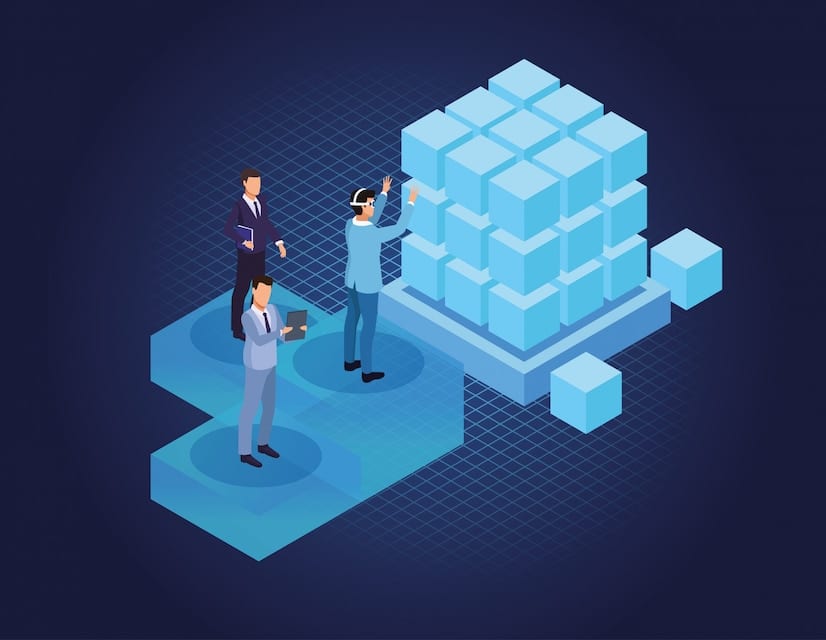
Exploring the essence of Blockchain Development
From finance to healthcare, blockchain development is transforming how we exchange information—quickly, accurately, and without compromising security. It revolves around constructing a network where transactions are transparent, and every participant has a clear view of the ledger. grasping blockchain’s concept marks the initial stride toward unlocking its full potential, heralding a future where digital transactions are as dependable as they are groundbreaking.
Types of Blockchain
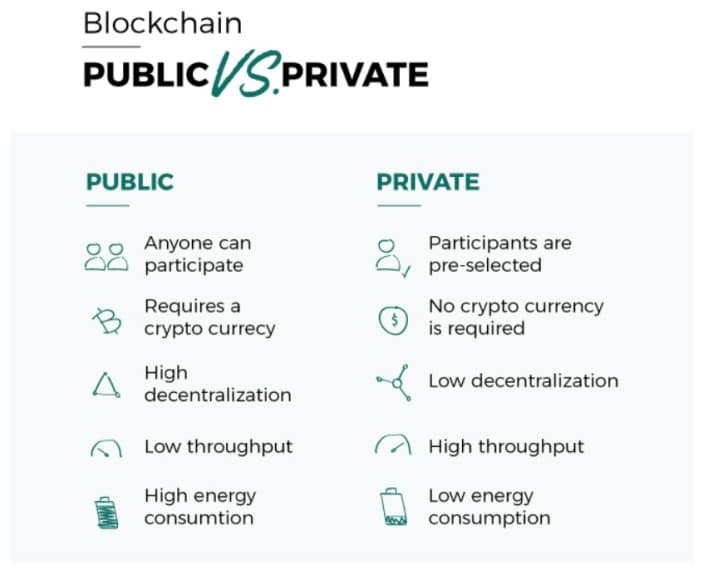
Quick comparison of public and private blockchains – Image source: Zigurat
In the previous section, we got a quick overview of Blockchain – what it is, how it functions, and its market significance. Now, let’s delve deeper into the various types of Blockchain and explore the professions that utilize them.
Public
Public blockchains embody the concept of decentralization, providing an inclusive network where trust is distributed among all participants. In this digital democracy, anyone with internet access can freely join and participate without needing permission. The structure of public blockchains ensures that no single entity holds control, and every transaction is openly visible to all network nodes. This concept was pioneered by the Bitcoin network, where each transaction is publicly accessible through a block explorer.

Bitcoin and blockchain are closely linked
While public blockchains reward participants with cryptocurrency for validating blocks and may impose fees for transactions, they offer only limited privacy. To maintain transactional privacy, users should share their public key solely with transaction counterparts. It’s this blend of openness and security that makes public blockchains a transformative force in the digital realm.
Private
Private blockchains, another type of blockchain, are controlled either by a single entity or a consortium of multiple entities. They offer a more restricted network environment compared to public blockchains. These networks rely on trust among known participants, ensuring that sensitive information is accessible only to those who are part of the network.
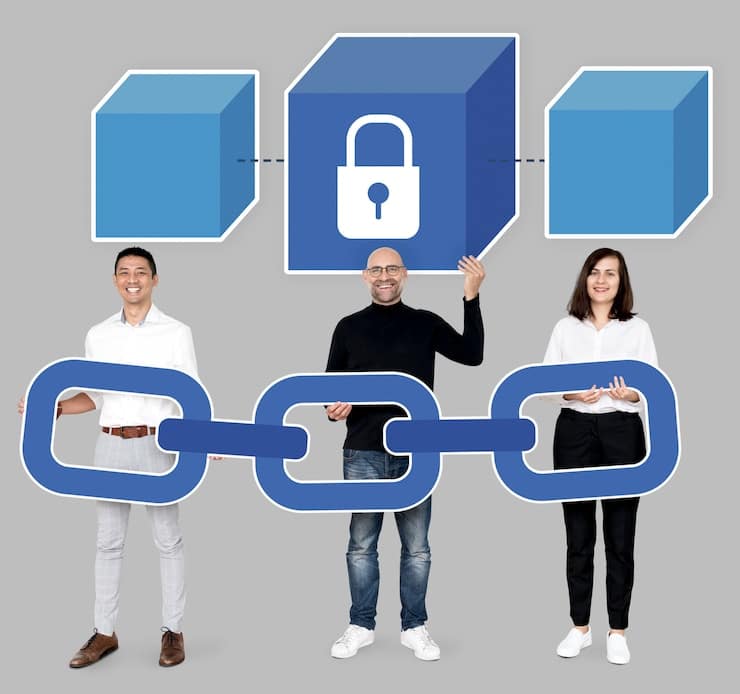
Blockchain Private Enhances Confidentiality: Leveraging Unparalleled Data Privacy and Security
In a consortium blockchain, authority is shared among pre-selected entities that work together in the network’s best interest. This arrangement maintains both privacy and a degree of decentralized governance. It’s particularly suitable for situations where transaction privacy is crucial.
For example, while all parties involved may be aware that a product has been shipped, the specific details of the shipment can remain confidential between those involved. This level of privacy is essential, especially when multiple competing entities are part of the same network. It enables them to carry out transactions without exposing sensitive data to others.
Blockchain protocols
Blockchain protocols serve as the cornerstone of the digital ledger landscape, establishing guidelines for data exchange and verification. Among these protocols, Bitcoin stands out as a pioneer tailored for cryptocurrency transactions, facilitating secure transfers of value without the need for trust between parties.
In contrast, Ethereum introduces a more expansive approach with its versatile protocol, enabling the execution of smart contracts that imbue transactions with layers of logic and code.
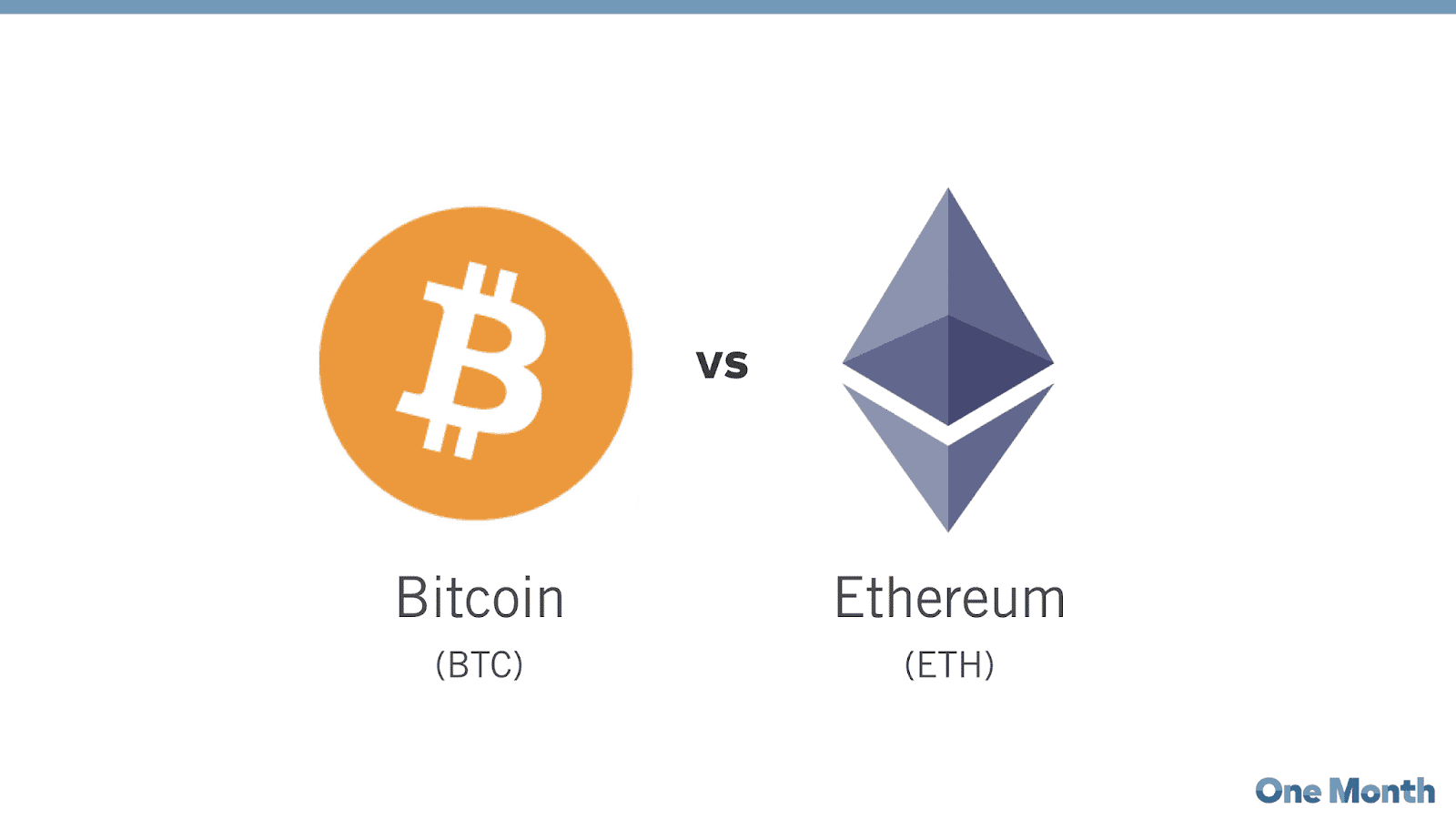
Cryptocurrency (Bitcoin) operates on its own blockchain network, while Ethereum (Token) offers greater flexibility – Image source: One Month
For those looking to leverage the potential of blockchain technology, protocols such as Ethereum and Hyperledger Fabric offer adaptable foundations. These programmable blockchains can accommodate diverse use cases by integrating business logic and state information into smart contracts. As a result, they open the door to a wide range of applications beyond simple value transfers.
Blockchain Application in Different Industries
As technology continues to advance swiftly, and with new possibilities for blockchain applications still unfolding in 2025, the list below offers some common examples of its use cases. While not exhaustive, it serves as a starting point to understand the potential of blockchain. For a deeper exploration into specific industry applications of blockchain, we invite you to explore our dedicated blog post on blockchain development use cases across various sectors.
Healthcare
In healthcare, blockchain technology is changing how patient records and pharmaceuticals are handled. By establishing a secure and unchangeable ledger for patient data, it boosts confidence in medical information systems. Its capacity to track drugs from manufacturing to distribution is pivotal in fighting counterfeit medications, guaranteeing patients get authentic products.
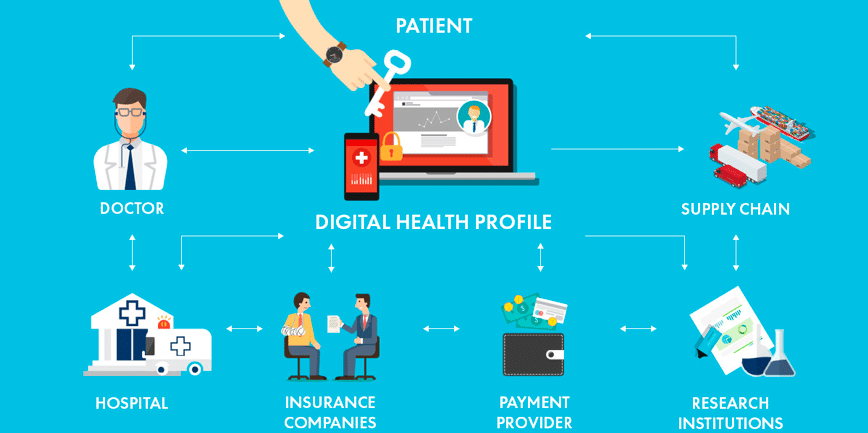
Blockchain technology’s application in healthcare offers substantial improvements over traditional methods, addressing various challenges effectively
As blockchain becomes more integrated into healthcare, it offers a promising future where patient care and pharmaceutical reliability are greatly enhanced in the digital healthcare realm.
Real estate

Benefits of applying Blockchain technology in real estate
For the realm of real estate, blockchain emerges as a game-changer, simplifying property transactions and notably curbing fraud. This innovative technology ensures the secure recording of property titles, accelerates ownership transfers, and introduces unprecedented transparency to the entire process.
Finance
We can envision that cryptocurrencies (like Bitcoin) and tokens (like Ethereum) are among the most well-known use cases of blockchain technology.
And in this finance, blockchain is driving innovation, enabling faster, cheaper, and safer payments. It revolutionizes international money transfers, surpassing traditional banking methods in both speed and cost-effectiveness. Furthermore, Decentralized Finance (DeFi) expands blockchain’s impact by providing services such as lending, borrowing, and trading directly on the blockchain, eliminating the need for traditional financial intermediaries. This transformation marks a new era in finance, where transactions are not only swifter and more economical but also more transparent and accessible.
Voting
Blockchain’s utilization in voting stands as a ray of hope for upholding electoral integrity. By registering votes on a decentralized ledger, blockchain guarantees that every vote is encrypted, traceable, and irreversible, ensuring transparency and security in the election process. This technology not only discourages manipulation but also strengthens the legitimacy of democracy itself.
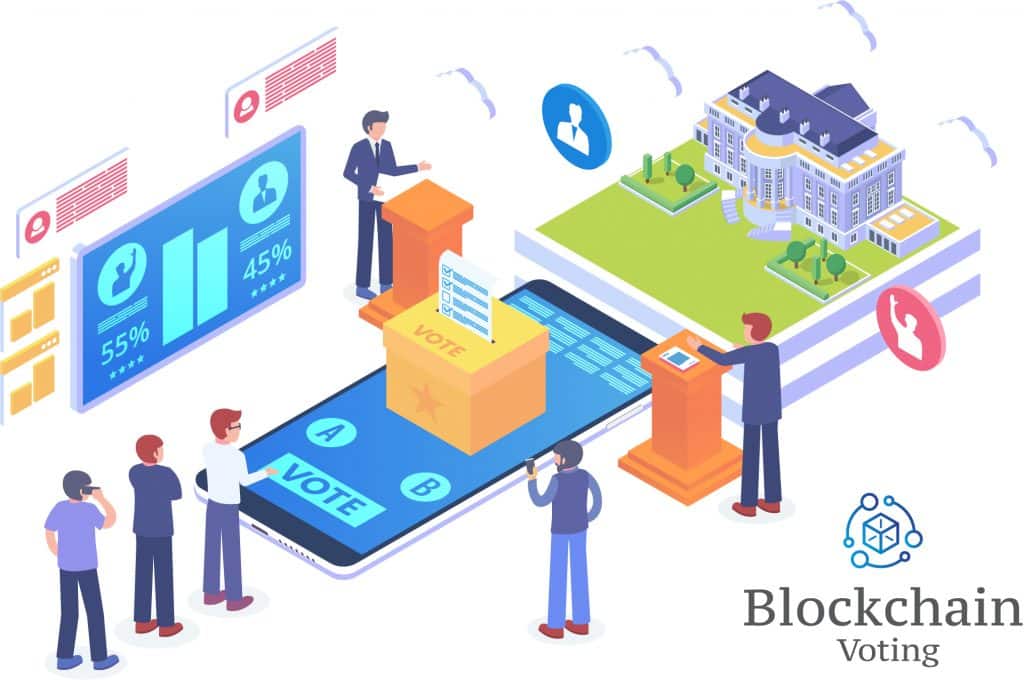
Harnessing Blockchain for Voting Ensures Transparency, Security, and Inclusivity, Reinventing the Electoral Process for the Digital Age
Moreover, numerous instances worldwide showcase blockchain’s application in voting. For instance, the 2018 federal elections in West Virginia, USA, witnessed voting on the Voatz platform, which operates solely on blockchain technology. The platform employs a three-step voter authentication process, including fingerprint recognition, a live photo, and a one-phone, one-vote system, ensuring both security and integrity. Another notable example is Zcoin, utilized for a primary election in Thailand, where over 127,000 votes were cast.
Supply chain

How Blockchain Transforms Supply Chain Management – Image Source: 3i Infotech
Blockchain is transforming supply chain management by improving transparency and traceability from the manufacturer to the consumer. Acting as a distributed ledger, blockchain documents every stage in the production, shipment, and receipt of products, creating an unalterable record that all stakeholders can rely on. This transparency is crucial in preventing counterfeit products from entering the market, guaranteeing consumers receive genuine goods.
Moreover, the incorporation of technologies like the Internet of Things (IoT) and smart contracts further simplifies the process, cementing blockchain as an essential tool in contemporary supply chain strategies.
Pros And Cons Of Blockchain Development
In the following section, we will assess the advantages and disadvantages of blockchain development. Our aim is to provide a fair evaluation to help you comprehend both the benefits and drawbacks of engaging in blockchain development.
Pros of Blockchain Development
Below are the 4 biggest advantages of blockchain development.
Better Transparency and Immutability
Blockchain’s architecture brings forth a new era characterized by transparency and immutability. In this system, every transaction is visible to all network participants and securely recorded. Once data is on the blockchain, altering it becomes exceedingly challenging, as it would require changing every subsequent block—a Herculean task due to the network’s consensus mechanism.
This shared and time-stamped documentation eliminates traditional vulnerabilities to fraud and corruption, as no central authority can unilaterally modify records. Consequently, trust is inherently embedded in the system, laying a solid foundation for secure and transparent digital interactions. Essentially, once data is recorded on the blockchain, it remains unalterable without changing all subsequent blocks, ensuring the utmost trust and security in the digital landscape.
Easy Integration With Existing Systems
Blockchain’s versatility is evident in its capacity to seamlessly integrate with existing business systems, bolstering not only security but also operational efficiency. This harmonious fusion can manifest in various forms, such as an application platform or Blockchain-as-a-Service (BaaS).
The former entails investing in the development of a platform to harness decentralized technology, whereas the latter offers businesses a direct conduit to blockchain networks. BaaS emerges as an especially advantageous option for businesses of all sizes, furnishing them with greater autonomy over their blockchain-related endeavors. Equipped with tools like Logic Apps and REST-based APIs, the integration process is streamlined, facilitating a seamless transition that complements and reinforces current systems.
Low Operational Cost
Blockchain development technology significantly reduces overhead costs by eliminating the necessity for centralized servers or intermediaries to conduct operations. Through the optimization of data management and transaction processes, it eradicates the requirement for intermediaries, decreases paperwork, and diminishes errors, resulting in substantial cost savings for businesses.
Easy Traceability
Traceability in modern supply chain management has undergone a revolutionary transformation, driven by the emergence of distributed ledger technology. Through the utilization of distributed ledger technology, each transaction is meticulously recorded on a decentralized ledger, establishing an unalterable audit trail. This meticulous documentation ensures transparency and traceability across every stage of the supply chain journey, from production through to delivery.
Unlike traditional databases, the immutable nature of this record-keeping simplifies the process of identifying and addressing discrepancies, making it an indispensable tool for optimizing efficiency and accountability within supply chains.
Cons Of Blockchain Development
Here are the 2 primary drawbacks of blockchain development.
Scalability
Scalability remains a significant challenge in blockchain technology. With the increasing demand for blockchain applications, networks like Bitcoin and Ethereum encounter congestion, causing slower transaction times and higher costs. The main issue stems from the limited capacity of each block, which is fixed at 1 MB in size, resulting in the inability to accommodate a large number of transactions.
This bottleneck poses a major obstacle for blockchain networks aiming to handle higher transaction volumes and gain wider adoption. To tackle this challenge, innovative solutions such as Layer 2 protocols and alternative consensus mechanisms are under development. These solutions aim to improve blockchain performance and efficiency, paving the way for smoother and more scalable operations.
Transaction Delays
Transaction delays pose a significant hurdle in blockchain technology. Unlike regular databases, blockchain relies on miners to verify transactions using intricate puzzles. While this method enhances security, it often leads to confirmation times lasting several hours, much longer than traditional payment systems. These delays worsen during network congestion, when a surge in transactions and more users strain the system, causing longer wait times and higher fees. This built-in delay emphasizes the importance of continuous improvements in blockchain infrastructure.
Looking For a Dedicated Team?
Looking to strengthen your manufacturing operations with state-of-the-art Blockchain technology? Look no further than Savvycom! With over 15 years of expertise in IT development, Savvycom specializes in providing customized Blockchain solutions to cater to the unique needs of your industry. Partner with us for expert Blockchain consulting, as Asia’s premier software outsourcing firm, and harness the power of innovative technology to streamline and secure your manufacturing processes. Let’s collaborate to enhance your operational efficiency and propel your business to new heights of success!
How To Become A Blockchain Developer
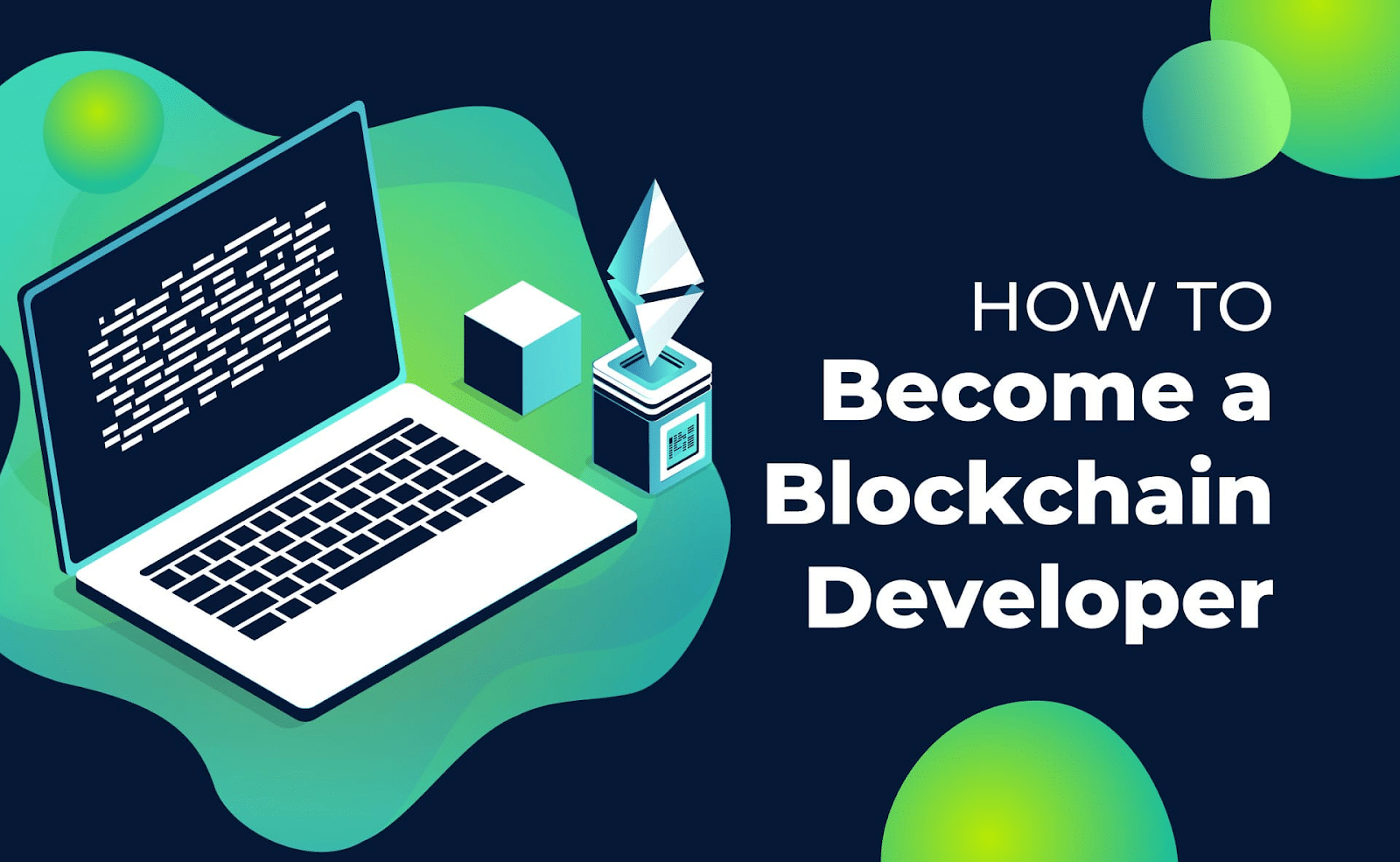
Key points to consider on your journey to becoming a blockchain developer – Image source: Moralis
So, with all these responsibilities, the question arises: how can we equip individuals with the skills needed to meet the challenges of blockchain development? Well, there are aspiring blockchain enthusiasts who are starting from square one, with no prior programming experience. Here are some key points to keep in mind if you’re aiming to become a blockchain developer.
Types of blockchain developers
- Front-End Developers: Think of them as the architects of the user experience. They craft the look and feel of blockchain applications, making them easy to use and navigate for everyday users.
- Back-End Developers: These are the behind-the-scenes wizards. They work on the server-side of things, ensuring that data flows smoothly and transactions are securely processed within the blockchain infrastructure.
- Full-Stack Developers: Picture them as the all-rounders. They possess a diverse skill set, seamlessly blending front-end and back-end expertise to create holistic blockchain solutions.
Understanding the Fundamentals of Blockchain
Understanding blockchain basics is essential for those interested in exploring this groundbreaking technology. At its core, blockchain operates on principles of decentralization and consensus, building trust within the network.
To grasp this concept, it’s vital to understand that blockchain acts as a distributed ledger, securely storing data in blocks. These blocks are linked together, creating an unchangeable ledger managed by a decentralized network.
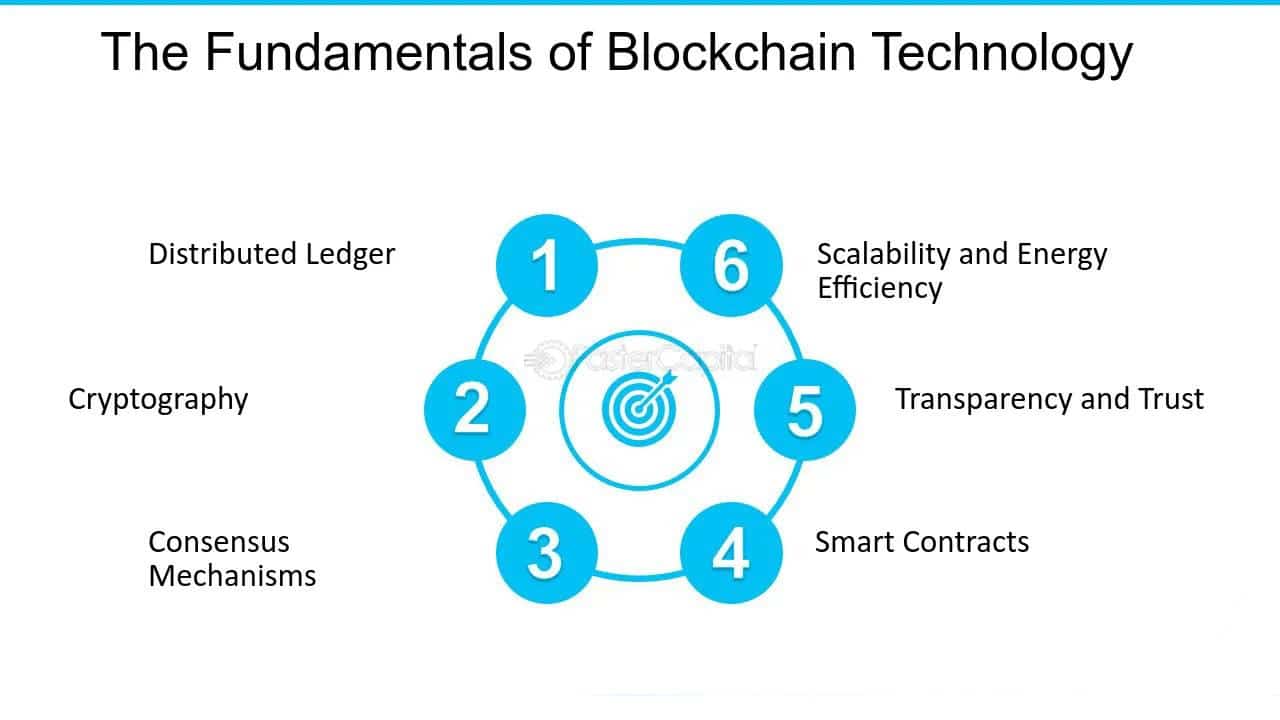
Understanding the fundamentals of blockchain technology is crucial when delving into this niche – Image source: Fastercapital
Blockchain is defined by its distributed, unchangeable, and decentralized structure, with each block containing a set of transactions. In summary, comprehending blockchain involves understanding decentralization, distributed ledgers, consensus mechanisms, smart contracts, and immutability.
Learning Essential Skills
Learning essential skills for blockchain developers is crucial for success in this rapidly evolving field. Firstly, mastering blockchain programming languages such as JavaScript, Python, and Go is essential for developing efficient blockchain applications capable of handling vast amounts of data and transactions.
Secondly, understanding cryptography and security protocols like hash functions and digital signatures is paramount to ensure data integrity and privacy. Additionally, proficiency in designing, developing, and testing smart contracts and DApps is necessary to automate processes securely and transparently.
Lastly, familiarity with networking and consensus algorithms like proof-of-work and proof-of-stake ensures transactions’ validity across the blockchain network. By acquiring these skills, blockchain developers can navigate the complexities of the decentralized ecosystem effectively and contribute to its advancement.
Blockchain Development Companies
If you have a blockchain project on the horizon, we’re eager to connect with you and guide you towards the best decisions. Savvycom, a software development company based in Vietnam, the US, and AU, brings over 15 years of experience, including expertise in blockchain technology.
With Savvycom’s blockchain development services, you can benefit from cost savings, enhanced flexibility, and access to high-quality tech talent. Our nearshore IT outsourcing solutions in APAC and the US, facilitated by strong partnerships, ensure seamless collaboration and top-notch results.
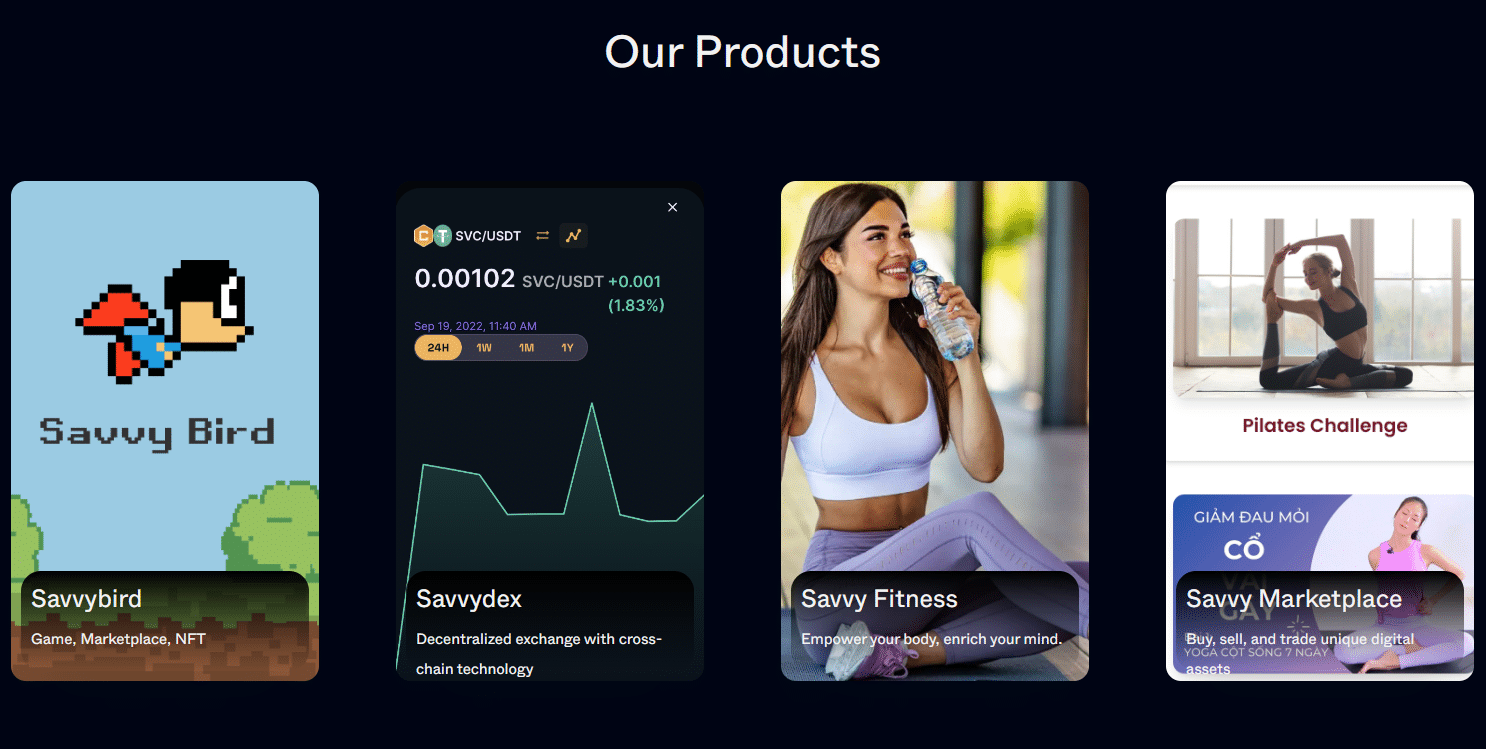
Explore Blockchain related categories provided by Savvycom
Learn more about our blockchain solutions and how they can align with your project needs by exploring our offerings further.
Final Thoughts
Blockchain development isn’t merely a passing trend; it represents a significant technological paradigm shift that is reshaping the landscape of digital transactions and data security. Whether you’re a developer aiming to specialize in blockchain or a business contemplating its integration, the opportunities are abundant and ready for exploration. As the blockchain ecosystem evolves, maintaining awareness and adaptability is crucial for harnessing its complete capabilities. We trust that our article will provide you with a clear understanding of what blockchain development entails. Best of luck on your journey!
Savvycom – Your Trusted Tech Partner!
Transforming Manufacturing with Cutting-Edge Blockchain Solutions with Savvycom, Asia’s Premier Software Outsourcing Provider, has been leading digital innovation since 2009. Drawing on our extensive experience, we specialize in developing cutting-edge Blockchain solutions customized to your requirements. Whether it’s supply chain optimization, smart contracts, or decentralized applications, we offer comprehensive solutions to revolutionize manufacturing processes. Partner with us to harness the power of Blockchain technology and drive innovation in your industry.
Savvycom is right where you need. Contact us now for further consultation:
- Phone: +84 24 3202 9222
- Hotline: +84 352 287 866 (VN)
- Email: contact@savvycomsoftware.com
Frequently Asked Questions
What do you need for blockchain development?
To get started as a blockchain developer, you’ll require a solid grasp of programming languages such as Solidity, Java, or C++. Understanding data structures and algorithms is also key, along with familiarity with blockchain platforms like Ethereum or Hyperledger. Additionally, you’ll need to dive into cryptography, smart contracts, and decentralized applications (dApps).
Why are blockchain developers needed?
Blockchain developers are indispensable in crafting, executing, and upkeeping blockchain systems. They are instrumental in establishing secure and transparent networks that facilitate a myriad of applications, spanning from cryptocurrencies to supply chain management. Their expertise ensures the effectiveness, security, and operability of blockchain technology.
How hard is blockchain development?
Delving into blockchain development can be intricate due to its complexity and the requisite understanding of decentralized systems, cryptography, and consensus mechanisms. Nonetheless, with commitment and access to appropriate resources, budding developers can grasp these concepts and attain the essential skills. Similar to any specialized field, staying abreast of evolving technologies demands continuous learning and adaptability.

